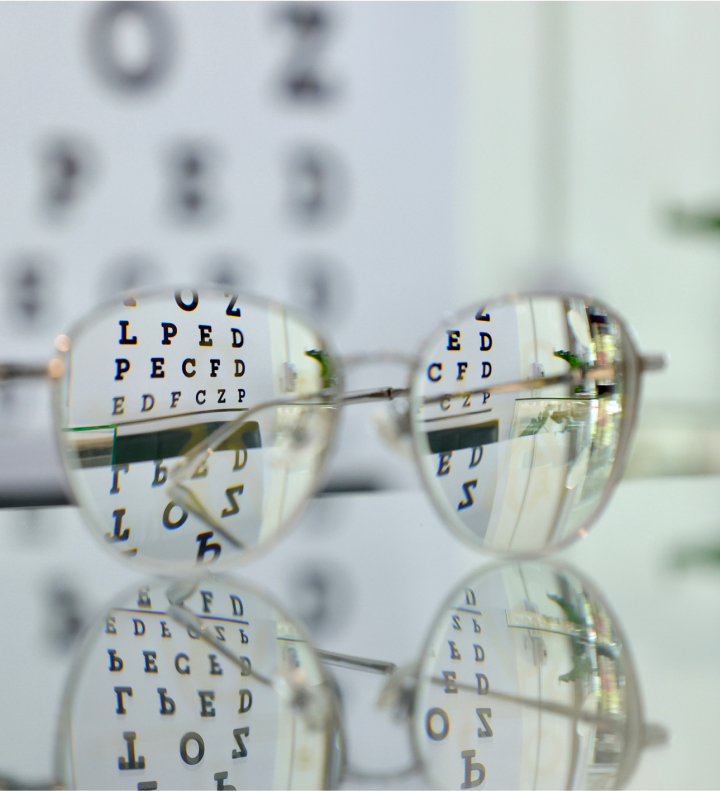


Diabetic Retinopathy Treatment from Eye Specialists
For those living with diabetes, protecting your eye health is critical. According to the Centers for Disease Control and Prevention (CDC), diabetic retinopathy is a leading cause of vision loss among working-age adults. The good news is that you can safeguard your vision by being proactive.
Our highly trained eye care providers in Northwest Georgia can detect early signs of eye damage and perform specialized procedures to help slow the progression of diabetic retinopathy. By catching issues early, we can help stabilize your vision and reduce long-term complications.
With locations in Dalton, Calhoun, Chatsworth, and Ft. Oglethorpe, our patients can access expert care close to home. Schedule your diabetic eye exam today.


What Is Diabetic Retinopathy?
Diabetic retinopathy (DR) is an eye condition that affects people living with diabetes. Over time, high blood sugar levels can damage the tiny blood vessels in the retina, which is the part of your eye that senses light and sends images to your brain. When these vessels weaken, leak, or grow abnormally, it can lead to vision problems and, if left untreated, can cause permanent vision loss.
One of the challenges of diabetic retinopathy is that it often develops without noticeable symptoms in the early stages. That’s why regular, comprehensive eye exams are so important for anyone with diabetes. With early detection, our doctors at Professional Eye Associates can monitor changes, provide timely treatment, and help protect your sight.
Symptoms That May Require Diabetic Eye Care
In the early stages, diabetic retinopathy may not cause any noticeable changes in vision. As the condition progresses, however, symptoms can appear that signal it’s time to seek immediate diabetic eye care. If you have diabetes, it’s important to stay alert to these warning signs and schedule regular eye exams.
Common symptoms may include:
- Blurred or fluctuating vision
- Dark spots, floaters, or strings that drift across your vision
- Difficulty seeing at night
- Colors appearing faded or washed out
- Sudden loss of vision in one or both eyes
Even if you are not experiencing symptoms, diabetic retinopathy can still be present and progressing silently. That’s why annual eye exams are the key to protecting your vision.
How We Diagnose Eye Problems Caused by Diabetes
At Professional Eye Associates, our board-certified ophthalmologists perform comprehensive eye exams using advanced diagnostic technology to detect diabetic retinopathy, often before you notice any changes in your vision.
A diabetic eye exam may include:
- Dilated eye exam: Drops are used to widen your pupils so your doctor can carefully examine the retina and optic nerve.
- Retinal imaging: Specialized cameras capture detailed pictures of the retina to track changes over time.
- Optical coherence tomography (OCT): A non-invasive scan that provides cross-sectional images of the retina, helping detect swelling or fluid leakage.
- Fluorescein angiography (when needed): A special dye test that highlights abnormal or leaking blood vessels in the retina.
With these tools, our team can catch diabetic retinopathy in its earliest stages and recommend the right course of care to protect your vision.


How Is Diabetic Retinopathy Treated?
Lifestyle Modifications & Monitoring
In the early stages, managing blood sugar, blood pressure, and cholesterol, along with routine eye exams, can slow progression.
Medications & Injections
Medications placed inside the eye can help reduce swelling, prevent new abnormal blood vessels from forming, and preserve vision.
Laser Treatments
Precise laser therapy can seal leaking blood vessels and shrink abnormal ones, reducing the risk of vision loss.
To prepare for your exams, gather all your relevant medical information, such as your diabetes history, medications, recent blood sugar levels, and A1C readings. Also, it is important that you inform your eye doctor about any supplements or vitamins you are taking before your procedure or exam.
Keep in mind that your eyes will likely be dilated for testing and treatment, so it is important to arrange transportation after your appointments.
Your recovery will depend on the procedure performed, but most patients experience manageable downtime with proper care and monitoring.
- Laser Treatment: You can protect your eyes from light sensitivity by wearing sunglasses outdoors and resting your eyes as needed. Over-the-counter pain relievers can help relieve any eye discomfort you may experience. Most patients are able to resume daily activities, including work or driving, within 24 hours.
- Intravitreal Injections: Recovery time after injections is typically minimal, with most patients returning to regular activities the same or next day.
No matter the treatment, follow-up visits and communication with your eye doctor are essential to monitor healing, assess for disease progression, and address any new problems or concerns.


Preserve Your Vision With Professional Eye Associates
When it comes to diabetic eye care, early diagnosis is key to prevent vision loss. Since 1972, Professional Eye Associates has provided expert diabetic eye care to patients throughout Northwest Georgia. From testing through treatment, we are committed to preserving your sight and improving your overall quality of life.
With state-of-the-art technology and a patient-first approach, we ensure you receive comprehensive, compassionate care close to home. If you have diabetes or are experiencing vision changes, schedule a consultation today and take the first step toward protecting your eyesight.